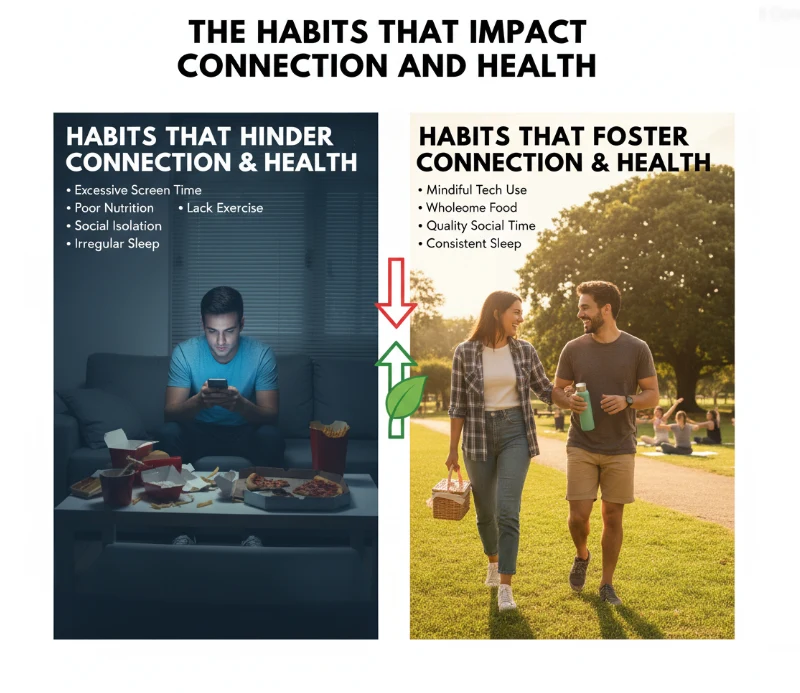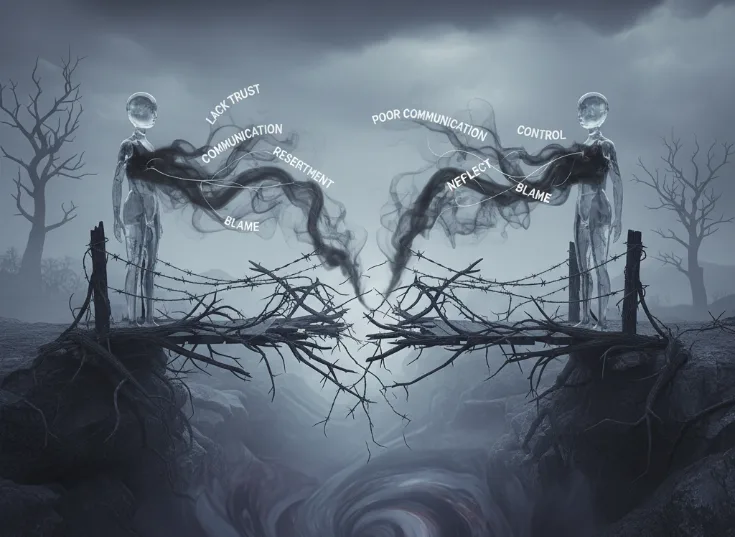14 Hidden Habits That Are Silently Sabotaging Your Love Life
We all have habits—the small, repetitive actions that make up our daily lives. Many of them are harmless, even helpful. But others? They can be like tiny termites, slowly eating away at the foundation of your love life. Finding the motivation to stop these ingrained patterns can be difficult, but what if you knew they were directly contributing to your partner’s unhappiness and putting your relationship at risk?
A healthy, thriving romantic partnership requires effort, empathy, and most importantly, self-awareness. It’s time to take an honest look in the mirror. If any of the following 14 habits sound familiar, it might be the moment to make a change—not just for yourself, but for the person you love.
The Habits That Impact Connection and Health
Some habits create a literal physical barrier or a feeling of distaste that chips away at intimacy:
1. Smoking: For many, the smell of smoke is deeply repulsive. This aversion is often amplified when it comes to physical closeness. Having to taste smoke during a kiss can be a major turn-off, making intimacy a chore rather than a pleasure for your partner.
2. Drinking Excessively: There’s a vast difference between enjoying a few cocktails and constantly getting out-of-control drunk. If your habit leads to you looking sloppy, becoming aggressive, or simply being unable to engage meaningfully, your partner will eventually tire of being your caretaker or dealing with your instability.
3. Daily Fast Food: While an occasional indulgence is fine, a constant diet of greasy fast food isn’t just unhealthy; it makes mealtime boring and uninspired. Relationships are built around shared experiences, and if “date night” always consists of the same drive-thru, it signals a lack of effort and creativity in a significant shared domain of life.
The Emotional and Psychological Saboteurs
These habits create resentment, drain positive energy, and compromise emotional safety:
4. Complaining Constantly: No one wants to be with a perpetual “negative Nancy.” While you don’t have to be positive 24/7, being constantly negative and focusing only on the bad aspects of life can be a real downer. It drains your partner’s energy and makes them dread spending time with you.
5. Criticizing Yourself: Constant self-criticism is a result of low self-esteem, and while it feels like you’re only hurting yourself, it damages your relationship. It tells your partner that you don’t value yourself and makes it difficult for them to praise or love you if you constantly reject their positive view. Letting this low confidence take over will prevent you from truly pursuing or maintaining a deep connection.
6. Blaming Other People: Accountability is a cornerstone of any mature relationship. If you consistently refuse to take responsibility for your actions, faults, or mistakes, your partner may perceive it as immaturity or insecurity. Owning up to your actions shows integrity and is essential for maintaining mutual respect.
7. Holding a Grudge: Unresolved issues become the silent killers of relationships. If you’re upset about something, you must talk it out. Holding it inside, refusing to discuss it, and letting it fester will only lead to resentment and emotional distance, which is toxic for long-term love.
The Habits That Compromise Shared Life
These habits disrupt the flow of a shared life and signal a lack of priority for the relationship:
8. Being Obsessed with Your Screen: Few things feel more dismissive than a partner who is constantly glued to their phone. When you are together, your phone obsession signals that a device is more interesting or important than the real human being right in front of you. Try living in the moment and being present.
9. Overspending Money: Budgeting is a critical life skill. In a serious relationship, especially one leading to or involving marriage, finances often pool together. If you cannot control your spending, it creates massive stress, insecurity, and distrust, often dooming the relationship. Financial stability is a key element of partnership.
10. Being Too Forgetful: Forgetting important events like birthdays and anniversaries can be deeply hurtful. It signals to your partner that they and the milestones of your shared history are not important enough to warrant even a simple note on a calendar. If you are constantly forgetting, a simple planner or calendar entry is a small effort that yields huge emotional returns.
11. Sleeping in Late All the Time: This becomes a major problem when you and your partner have different chronotypes, especially if they are a morning person. If you consistently sleep through the entire day, you miss out on major quality time, including breakfast, morning rituals, and potentially even productive weekend hours. This lost time can make your partner feel lonely and neglected.
12. Not Sleeping Enough: While sleeping in is a problem, not sleeping at all can be just as bad. Having a habit of staying up late and never getting sufficient rest will make you irritable and cranky. This lack of emotional regulation is likely to lead to petty fights and constant tension, poisoning the atmosphere of your home life.
The Habits That Harm Partnership Dynamics
These habits interfere with how you interact and support each other:
13. Neediness: A partner should always be a source of support, but there’s a line between leaning on someone and becoming overly needy or clingy. If you constantly demand attention and lack independence, it can feel smothering and eventually scare a partner off. Give your love some room to breathe and learn to appreciate your own valuable alone time.
14. Not Having a Filter: While honesty is vital, there’s a world of difference between being truthful and simply being mean. Saying hurtful things because you “just blurted them out” and didn’t think them through beforehand is not a virtue—it’s carelessness. True maturity involves realizing that the impact of your words is more important than your immediate desire to speak them.
Taking the Next Step
Recognizing these habits is the first and hardest step. If you’ve identified one or more of these patterns in your life, don’t despair. Habit changes are possible with intention and commitment. Start small, communicate openly with your partner about the changes you are trying to make, and ask for their support. Your love life—and your general well-being—will thank you for it.















